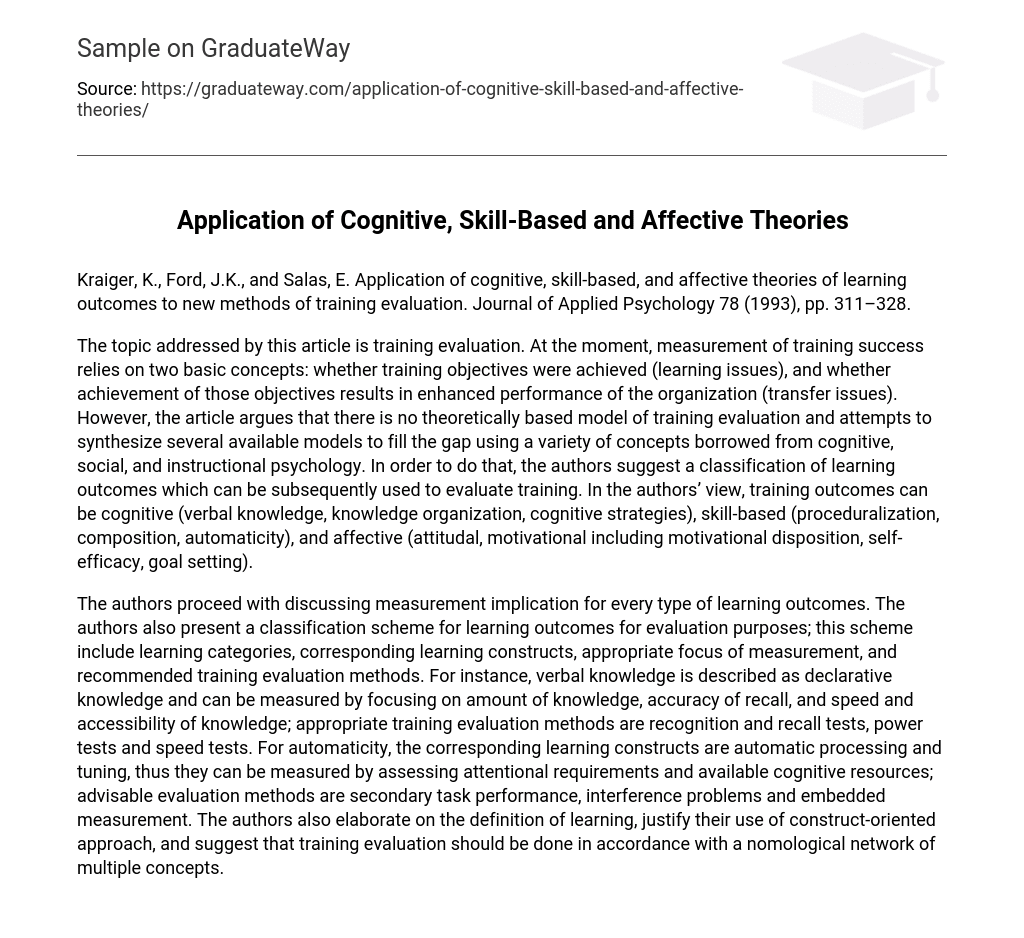Kraiger, K., Ford, J.K., and Salas, E. Application of cognitive, skill-based, and affective theories of learning outcomes to new methods of training evaluation. Journal of Applied Psychology 78 (1993), pp. 311–328.
The topic addressed by this article is training evaluation. At the moment, measurement of training success relies on two basic concepts: whether training objectives were achieved (learning issues), and whether achievement of those objectives results in enhanced performance of the organization (transfer issues). However, the article argues that there is no theoretically based model of training evaluation and attempts to synthesize several available models to fill the gap using a variety of concepts borrowed from cognitive, social, and instructional psychology. In order to do that, the authors suggest a classification of learning outcomes which can be subsequently used to evaluate training. In the authors’ view, training outcomes can be cognitive (verbal knowledge, knowledge organization, cognitive strategies), skill-based (proceduralization, composition, automaticity), and affective (attitudal, motivational including motivational disposition, self-efficacy, goal setting).
The authors proceed with discussing measurement implication for every type of learning outcomes. The authors also present a classification scheme for learning outcomes for evaluation purposes; this scheme include learning categories, corresponding learning constructs, appropriate focus of measurement, and recommended training evaluation methods. For instance, verbal knowledge is described as declarative knowledge and can be measured by focusing on amount of knowledge, accuracy of recall, and speed and accessibility of knowledge; appropriate training evaluation methods are recognition and recall tests, power tests and speed tests. For automaticity, the corresponding learning constructs are automatic processing and tuning, thus they can be measured by assessing attentional requirements and available cognitive resources; advisable evaluation methods are secondary task performance, interference problems and embedded measurement. The authors also elaborate on the definition of learning, justify their use of construct-oriented approach, and suggest that training evaluation should be done in accordance with a nomological network of multiple concepts.





